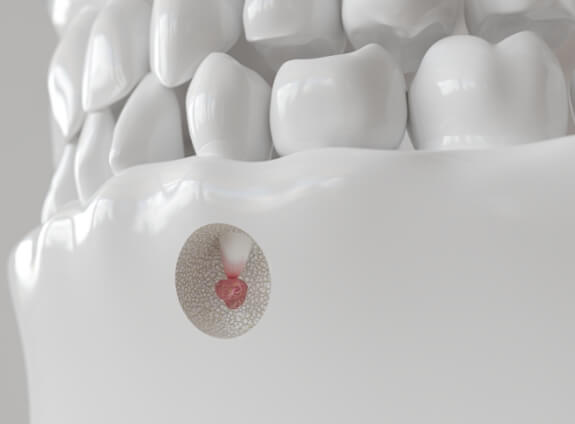Apicoectomies & Endodontic Microsurgery Livingston
A Sophisticated Solution for Your Tooth Infection

Sometimes, a dental infection can spread into the roots of a tooth and beyond to the jawbone. To protect the tooth in question, we may recommend an apicoectomy. This is a form of endodontic microsurgery that involves the tips of the roots of the teeth. If you have noticed problems with your tooth even after a root canal treatment, reach out to Liv Endodontics today; our team can help determine whether an apicoectomy in Livingston might be necessary.
Why Choose Liv Endodontics for Apicoectomies?
- Highly trained NYU Endodontists with 10+ years of experience
- CBCT Technology for Treatment Planning
- Easy to Schedule Same-Day Emergency Appointments
What Is an Apicoectomy?

Once your apicoectomy is complete, you may experience a small amount of discomfort and swelling. Ibuprofen and similar over-the-counter medications can help you manage the pain; antibiotics may also be prescribed to minimize the chances of infection. You should notice an improvement in your symptoms after a few days.
The Apicoectomy Treatment Process

Your comfort is important to us, so we will always make sure your mouth has been properly numbed before we move forward with your apicoectomy. We’ll open the gums so that we can work with your tooth roots. The tip of the root will be taken off, and we’ll get rid of any infected tissue we find. A filling will be placed to seal the root. After that, all that’s left is to suture the gums in place so that they can heal properly.
What Happens After My Apicoectomy?

Once your apicoectomy is complete, you may experience a small amount of discomfort and swelling. Ibuprofen and similar over-the-counter medications can help you manage the pain; antibiotics may also be prescribed to minimize the chances of infection. You should notice an improvement in your symptoms after a few days. If your discomfort seems to grow worse instead of fading away, something has gone wrong, and you should contact us right away so that we can figure out what the issue is.
